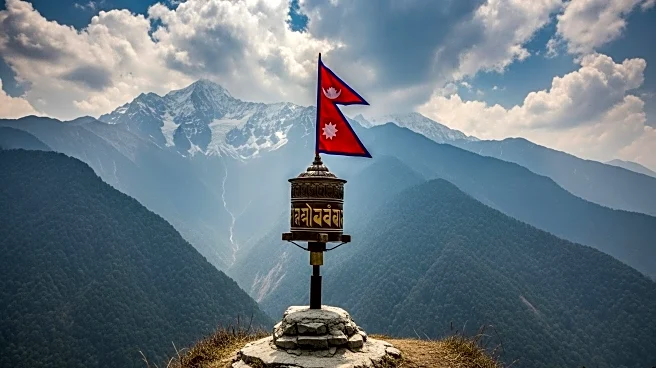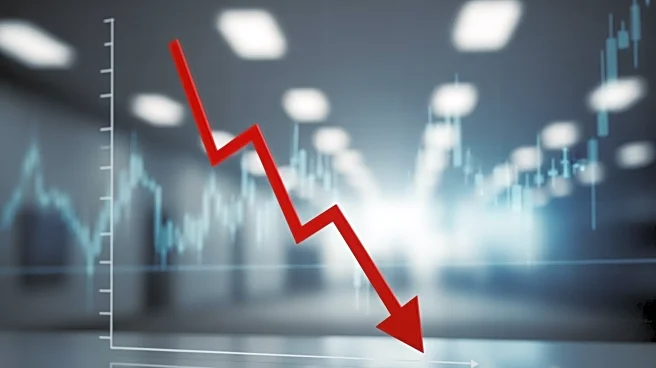What is the story about?
What's Happening?
Nepal is experiencing significant unrest following the government's decision to block over two dozen social media platforms, including Facebook, Instagram, WhatsApp, YouTube, and X. The move, justified by the government as a response to regulatory violations, hate speech, and online abuse, has been perceived by young Nepalis as censorship. This has sparked widespread protests, with demonstrators clashing with police and breaching government compounds. The protests are driven by a mix of corruption scandals, poor governance, and the assault on digital freedoms, leading to a severe crackdown by the state.
Why It's Important?
The situation in Nepal highlights the critical role of social media in modern political movements and the potential consequences of government censorship. The protests reflect broader dissatisfaction with corruption and governance issues, and the government's actions have intensified public anger. This unrest could have significant implications for Nepal's political stability and economic prospects, as tourism and investor confidence may be affected. The events in Nepal also resonate with similar movements across South Asia, where youth are increasingly challenging entrenched political systems.
What's Next?
The government faces a choice between continuing repression or engaging in dialogue and reform. The outcome will determine whether the current unrest leads to lasting political change or further instability. International attention may increase, with potential diplomatic pressure on Nepal to address the underlying issues. The protests could inspire similar movements in other countries facing governance challenges, emphasizing the power of digital platforms in mobilizing public action.
Beyond the Headlines
The protests in Nepal underscore the generational divide and the demand for accountability and transparency in governance. The use of social media as a tool for organizing and exposing corruption highlights the evolving nature of political activism. The situation raises questions about the balance between regulation and freedom of expression in the digital age, and the ethical implications of government control over online platforms.

















